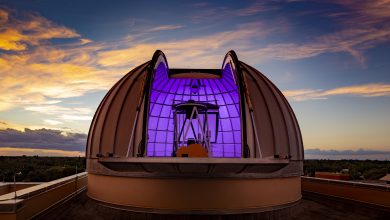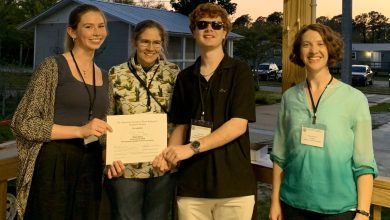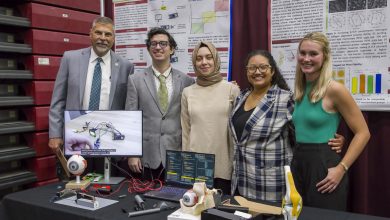Science Double Feature Friday at Florida Tech with Algorithms, Super Earths
Free Public Lectures at 7 p.m., 8 p.m. March 24
MELBOURNE, FLA. — The importance and impact of algorithms and the mysteries of super Earths and sub Neptunes will be explored at two free public events Friday, March 24 at Florida Institute of Technology.
From 7-8 p.m. in Room 130 of the Olin Life Sciences Building on campus, Florida Tech faculty members Phillip Chan and Ryan Stansifer will discuss the impact computational advances have on society.
Presented by the Florida Tech School of Computing and the Harris Institute for Assured Information, “A Closer Look at Computing: The Million Dollar Algorithms” will examine algorithms that have launched industries, promoted social stability, and even earned Nobel Prizes.
Looking at computer science problems that the public may encounter in their everyday lives, Chan and Stansifer, both associate professors of computer science in the School of Computing, will touch on issues such as how graduating medical students are assigned to their first hospitals and how search engines like Google rank web pages.
Directions can be found by going to http://www.fit.edu/map/?location=500OLS and then selecting “Directions” in the bottom right corner.
Guests are then encouraged to head across Olin Quad for the second half of Florida Tech’s science double feature: a presentation from astrophysicist Carolyn Morley, a Sagan Fellow and ITC Fellow from Harvard University’s Institute for Theory and Computation.
Starting at 8 p.m., Morley will offer, “Seeing Through the Clouds: The Atmospheres of Super Earths and Sub Neptunes” in Room EC 118 of the Olin Engineering Complex.
Directions can be found at http://www.fit.edu/map/?location=501OEC.
The Kepler Space Telescope has revealed the existence of vast numbers of planets that are both larger than Earth and smaller the Neptune – but no planets of this size exist in our own solar system. Understanding the properties of these planets will shed light on how planets form and the differences between our solar system and extrasolar systems.
Morley will discuss the challenges of detecting these super Earths and sub Neptunes, including the presence of exotic species that form clouds of rocks, salts and soot that obscure the features scientists are trying to measure. She will also present work that predicts how NASA’s new flagship James Webb Space Telescope will allow this research to continue.
Following the lecture at approximately 9 p.m., and weather permitting, Florida Tech’s Student Astronomical Society will open the 32-inch Ortega telescope in the nearby Olin Physical Sciences Building for public viewing. Three smaller telescopes will be on hand for use, as well.
###





